Valves in UAE
(39 products available)Valves are widely used in various industrial and commercial applications. They are mainly used to control and regulate the flow of liquids, gases, and even solids. These mechanical devices are designed to open, close, or partially block the flow of materials through pipelines, vessels, and other systems. Valves are used in a wide range of industries such as oil and gas, water and wastewater treatment, chemical processing, power generation, and manufacturing. They play an important role in maintaining safety, ensuring efficient operations, and minimizing downtime in these critical sectors. Valve manufacturers provide valves in different types, sizes, and materials to meet specific operational requirements and environmental conditions. Common valve types include gate, globe, ball, butterfly, and check valves. Each valve is designed for specific applications and flow control needs.
Valves are widely used in various industrial and commercial applications. They are mainly used to control and regulate the flow of liquids, gases, and even solids. These mechanical devices are designed to open, close, or partially block the flow of materials through pipelines, vessels, and other systems. Valves are used in a wide range of industries such as oil and gas, water and wastewater treatment, chemical processing, power generation, and manufacturing. They play an important role in maintaining safety, ensuring efficient operations, and minimizing downtime in these critical sectors.
Valve manufacturers provide valves in different types, sizes, and materials to meet specific operational requirements and environmental conditions. Common valve types include gate, globe, ball, butterfly, and check valves. Each valve is designed for specific applications and flow control needs.
Valve suppliers in UAE play an important role in providing different valves to various industries. The different valve suppliers offer a comprehensive range of Industrial Valves & Valve Fittings from reputable manufacturers, they are responsible for maintaining the quality and reliability, verifying compliance with industry standards and regulations, and obtaining necessary confirmations. Valve suppliers meet the needs of local and regional industries. They make sure that the high-quality valves are available for different applications.Valves are widely used in various industrial and commercial applications. They are mainly used to control and regulate the flow of liquids, gases, and even solids. These mechanical devices are designed to open, close, or partially block the flow of materials through pipelines, vessels, and other systems. Valves are used in a wide range of industries such as oil and gas, water and wastewater treatment, chemical processing, power generation, and manufacturing. They play an important role in maintaining safety, ensuring efficient operations, and minimizing downtime in these critical sectors.
Valve manufacturers provide valves in different types, sizes, and materials to meet specific operational requirements and environmental conditions. Common valve types include gate, globe, ball, butterfly, and check valves. Each valve is designed for specific applications and flow control needs.
Valve suppliers in UAE play an important role in providing different valves to various industries. The different valve suppliers offer a comprehensive range of Industrial Valves & Valve Fittings from reputable manufacturers, they are responsible for maintaining the quality and reliability, verifying compliance with industry standards and regulations, and obtaining necessary confirmations. Valve suppliers meet the needs of local and regional industries. They make sure that the high-quality valves are available for different applications. View lessValves
- Usage/Application : Industrial
- Material : Stainless Steel/Iron/Brass etc.
- Operation Mode : Manual/Automatic
Description: Explore precision and reliability with valves from AL Itqan Factory Equipment Trading LLC in Dubai. Our valves are designed to regulate and control the flow of liquids or gases, ensuring smooth and efficient operations. Crafted for durability and ease of use, these valves are ideal for various industrial applications. Trust AL Itqan Factory Equipment Trading LLC for quality valves that guarantee optimal performance and contribute to the seamless functioning of your systems.
Valves
- Type of Product : All types of Valves
- Usage/Application : Industrial
- Size : Different Sizes Available
Description: Explore a diverse range of high-quality valves at Al Asas Valves Trading LLC in Dubai, UAE. Our extensive selection caters to various industrial applications, ensuring reliability and performance. From gate valves to ball valves, we offer products crafted with precision and durability, meeting stringent quality standards. With a commitment to customer satisfaction, we provide tailored solutions to suit specific needs. Trust Al Asas Valves Trading LLC for premium-grade valves that deliver exceptional performance and value, backed by our dedication to excellence and reliability in every product.
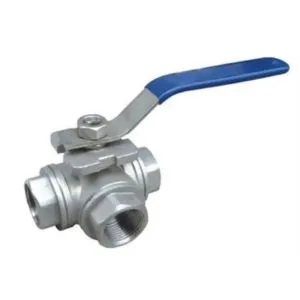
- Usage/Application : Industrial
- Corrosion Resistance : Yes
View more...
Other Categories
Pipe Fittings | Pipe | Valves | Flanges | Clamps | Gaskets | Camlock Couplings
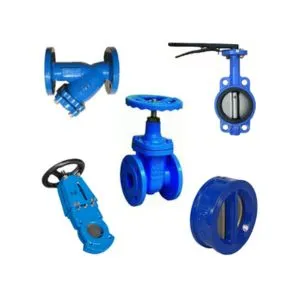
- Material : Cast Iron
- Pressure Rating : Handles high-pressure environments
View more...
Other Categories
Pipe Fittings | Valves | Pipe | Flanges | Clamps | Gaskets | Camlock Couplings
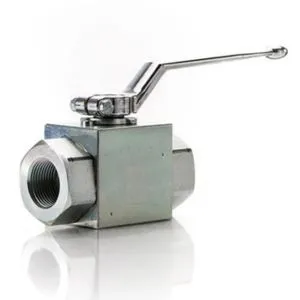
- Pressure Rating : High
- Material Grade : Premium
View more...
Other Categories
Pipe Fittings | Valves | Pipe | Flanges | Clamps | Gaskets | Camlock Couplings
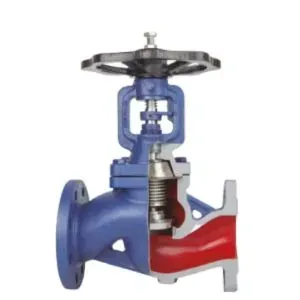
- Available Material : Carbon Steel (WCB A216), Cast Iron
- Available Size : 1/2″ to 12”
View more...
Al Zerwa Trading Co LLC
Other Categories
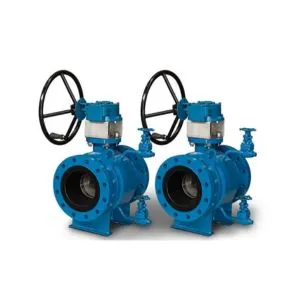
- Usage/Application : Industrial
- Connection Type : Flanged, Threaded
View more...
JC Valvulas FZC
Other Categories
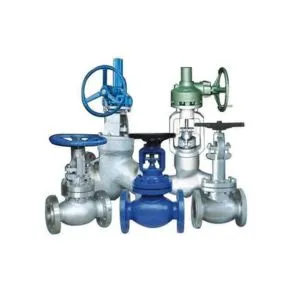
- Type of Valves Available : Gate Valves,Globe Valves,Pressure Reducing Valve,Butterfly Valves and many more
- Available Material : Carbon Steel,Stainless Steel,Forged Steel,Ductile Iron,Cast Iron,Brass
View more...
Al Zerwa Trading Co LLC
Other Categories
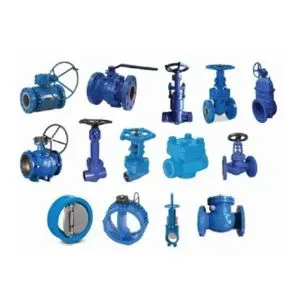
- Usage/Application : Industrial
- Material : Stainless Steel/Iron/Brass etc.
View more...
Other Categories
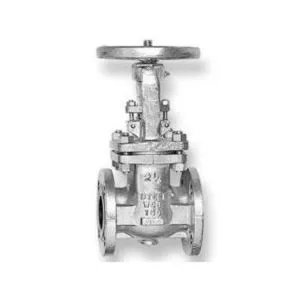
- Type of Product : All types of Valves
- Usage/Application : Industrial
View more...
Al Asas Valves Trading LLC
Other Categories
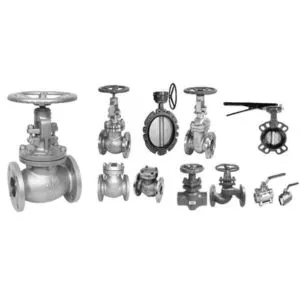
- Type of Product : All type of Valves
- Usage/Application : Industrial
View more...
Al Asas Valves Trading LLC
Other Categories
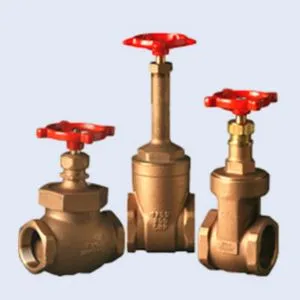
- Application : Industrial or Commercial
- Material : Bronze alloy
View more...
Other Categories
Pipe Fittings | Valves | Pipe | Flanges | Clamps | Gaskets | Camlock Couplings

- Usage/Application : Industrial
- Material : Stainless Steel/Iron/Brass etc.
View more...
Other Categories

- Type of Product : All types of Valves
- Usage/Application : Industrial
View more...
Al Asas Valves Trading LLC
Other Categories
An easy way to post your sourcing requests and get quotes.
- One request, multiple quotes
- Verified suppliers matching
- Quotes comparison and sample request
What are Valves?
Valves are like taps or switches. They control the flow of liquids, gases, or thick mixtures called slurries. Valves are very important in places like factories, construction sites, and water systems. In UAE, valves are used a lot. This is because UAE has many big industries like oil, gas, construction, and manufacturing. Valves help these industries work properly.
Types of Valves
Valves in UAE are instruments that guide, regulate, or control the flow within a supply system. These are utilized in pipes that transport gases like cooking gas and natural gas, or liquids like water, oil, and chemicals. The ability to fully start or stop the flow is the most fundamental use of a valve. But they can also be used to throttle flow rates, control flow or pressure, and enhance safety by releasing vacuum or pressure from the piping system. Valves also stop liquid or gas from flowing backward. Let's examine a few of the common valve types and their particular uses.
Ball valves:
These offer simple on/off control with a 90-degree handle that acts quickly. Compared to conventional valves, these need less time and effort to operate because they don't need a lengthy winding motion. The majority of applications for these valves include thermal power plants, fertilizer facilities, petrochemical operations, and refineries.
Butterfly valves:
Because of its idiosyncratic compact design, these work best in small areas. Their name derives from the disc's wing-like motion that acts perpendicular to the flow. These are used in petrochemical, chemical processing, and sewage treatment facilities.
Spindle Valve:
The spindle wheel connected to the spindle rod only needs to be twisted to operate this type of valve, which has the most basic mechanism. This pauses the flow and moves the gate at a right angle to it. Water supply is the main application for these valves.
Foot Valve:
A foot valve is usually mounted at the pipe's bottom or the base of a pump. To keep debris out, these feature an open end covered with a screen or shield. These are mounted atop a pump and found in lakes, ponds, and swimming pools. They allow the liquid to enter but stop it from leaving again.
Gate Valve with Knife
The knife gate valve, which is commonly used to regulate the flow of media containing particles, has a thin gate with linear action control that may cut through materials and form a seal.
Globe Valve
Globe valves are commonly utilized in control procedures that involve modulation. usually available in three body types: angle body, Y-pattern, and T-body (as pictured above).
A needle valve
Needle valves derive their name from the point on a conical disc that is employed therein; they are typically used in tiny-diameter piping systems when precise, delicate flow control is required.
Plug valve
These valves regulate flow with tapered or cylindrical plugs and a quarter-turn quick-acting valve handle. They are dependable in high-pressure or high-temperature settings and offer some of the greatest ratings where tight shutdown is crucial.
Release of Pressure Valve
These spring-automated valves are used in over-pressure situations to help restore system pressure to the correct level, hence enhancing safety.
Diaphragm Valve
An elastomeric diaphragm and a saddle or seat, upon which the diaphragm shuts, make up a diaphragm valve, sometimes referred to as a membrane valve. To close the valve, a linear compressor is utilized to force the thin, flexible diaphragm into contact with the saddle or seat. Diaphragm valves are useful for throttling applications because they permit the route to be partially closed.
Functions of a valve in piping systems
Valves are essential for boosting productivity, enhancing quality assurance, and guaranteeing a process's dependability and safety. The intended purpose of the valve is the main factor to be taken into account when choosing a valves suppliers in UAE. A piping system may include valves for one or more of the following purposes:
- • Initiation or cessation of fluid flow
- • Limiting the flow rates in a network of pipes
- • Controlling fluid temperature and pressure in a pipe system
- • Changing the direction of the flow or restricting it to maintain system balance or avoid over pressurization
- • Stop the fluid from flowing backward.
- • Halting the flow in the event of a system malfunction
- • Reducing pressure or vacuum in a pipe system to increase safety
Engineers typically indicate on the Process and Instrumentation Diagram (P&ID) the kind of valve that will work best for the intended purpose during the design phase of a pipe system or manufacturing process. A P&ID is a schematic representation that shows how the system, instrumentation, and pipe components relate to one another functionally.
Understanding How Valves Work
A valve is like a gate that controls the flow of liquids or gases through pipes. It opens to allow the liquid or gas to pass through and closes to stop the flow.
The main parts of a valve are:
- • Body: This is the outer shell that holds everything together. It's like the walls of a house, protecting the inside parts.
- • Bonnet: This is the removable top part that covers the valve. It's like a hat that you can take off to look inside or make repairs.
- • Stem: This is the long rod that sticks out of the bonnet. You turn or push it to open or close the valve. It's like a lever that you use to control the gate.
- • Seat: This is the area inside the valve where the flow gets stopped or allowed to pass. When the valve is closed, the seat makes a tight seal to prevent any leaks.
- • Disk or Plug: This is the movable part that actually blocks or opens the flow path. It presses against the seat to create a seal when closed. It's like a door that shuts tightly.
Where are Valves Used?
Valves are used in many industries in UAE. Let's see where:
- • Oil and Gas Industry: Oil and gas companies use a lot of valves. Valves control the flow of oil and gas from the ground. They are also used in oil refineries.
- • Construction and Infrastructure: Valves are used in buildings for controlling water, air conditioning, and fire safety systems. They are also used in big projects like pipelines for water, sewage, and other liquids.
- • Water Systems: Valves in UAE are very important in water supply and sewage treatment systems. They control the flow of clean water to houses and businesses. They also control the flow of sewage in treatment plants.
Valve End Connections
After taking into account design and dimensions, valve end connections should also be taken into account.
Selecting an end connection that works with your plumbing is the most obvious consequence here, but other functional aspects of popular end types may make one valve better suited to your requirements than another.
Common valve ends and connections are as follows:
- • Screwed or threaded: Frequently utilized for sample points or instrument connections
- • Flanged: The most widely used ends for pipes are flanged.
- • Butt-welded: Usually employed in high-pressure or high-temperature processes, butt welding
- • Socket welded: When threaded connections are prohibited, socket welded connections are frequently utilized on tiny bore pipes.
- • Wafer and Lug: These are often used compact valves that are fitted in systems with little room.
What are the Advantages of Valves?
- • Flow control: Valves let you easily control the flow of liquids or gases. You can adjust how much passes through by opening or closing the valve a little or a lot.
- • Isolation and shut-off: Valves allow you to quickly shut off flow to prevent leaks or accidents. If there's a problem, you can turn a valve to stop the liquid or gas right away before it causes damage.
- • Separation: Valves act like gates to separate different sections of a pipe system. This lets you repair one part while the rest keeps flowing. It's like disconnecting just one room from the house plumbing.
- • Pressure regulation: Valves help regulate and maintain the right pressure levels. Too much pressure can be dangerous, but valves release extra pressure when needed to stay in the safe range.
- • Flexibility: Different types of valves exist for different purposes. You can choose Stainless Steel Valves made for high temperatures, toxic materials, precise metering, and more.
How are valves in piping systems classified?
There exist multiple classification schemes for valves. Their functions, types of operating mechanisms, end connections, mechanical motion, construction material, pressure and temperature ratings, and port sizes can all be used to categorize them. To make sure the valve is appropriate for the intended use, it is crucial to take into account each of these classifications when selecting a valve.
The function of a valve
Valves are used in processes to carry out various tasks. They can be employed to control pressure and flow or to start and stop the flow. They might be necessary to regulate the flow's direction or to increase process safety. High pressure valves are divided into two categories: isolation valves and regulation valves, depending on how they control flow.
Method of operation
Based on how they are used, valves can be categorized as automatic, actuated, or manual.
- • Manually operated valves : Usually, wheels, levers, pedals, knobs, or chains are used to help humans operate manual valves. These valves can have their mechanical gears changed to increase torque or speed of operation, as well as to change the direction of movement.
- • Switched valves : To facilitate remote control and automation of valve performance, electric motors, pneumatic systems, hydraulic systems, or solenoids are frequently coupled to valves in high-precision or large-scale applications.
Final Links
Pipes and valves are joined by joints, which can be welded, flanged, or screwed. Below is a list of several typical valve end types:
- • Flanged end valves: Two flanges are fastened together to create a joint. A flange is a plate or ring that forms a rim at the end of a pipe or valve.
- • fitted end valves: The end of a pipe or other fitting is fitted into the threaded joints of screwed end valves.
Mechanical motion
Valves can be categorized as Linear Motion Valves or Rotary Motion Valves based on the closing element's mechanical motion. A linear motion valve has a closing mechanism that moves in a straight line to permit or prohibit flow. The valve is referred to as a rotary motion valve when the closing part rotates or travels in a circle.
Building supplies
Stainless steel, alloy steel, brass, cast iron, or polymers can be used for the valve body, depending on the application, durability, and required temperature and pressure ratings. PTFE, POM, FKM, PA, EPDM, or NBR are typically used for the gasket, packing, and valve seat to attain the appropriate temperature/pressure ratings and seal level.
Ratings for pressure and temperature
Ratings for temperature and pressure can also be used to categorize valves. These ratings indicate the highest pressure and temperature ranges that the valve can be exposed to without risk.
Factors That Should Be Considered When Purchasing Valves
Material Requirements for Valves
Valves are subjected to a variety of corrosive, erosive, and abrasive substances in industrial environments. It is necessary to look at the material requirements for the valve shell and its internal parts.
To prevent premature wear, leakage, or failure, the material selection should be suitable for the handling of the media. Chemical compatibility, heat resistance, and mechanical strength should all be carefully taken into account while selecting the valve.
Adherence to pipeline regulations and safety standards
Safety is the most important factor when it comes to industrial applications. It is vital to ensure that the stainless steel valves being purchased comply with all applicable safety regulations and pipeline rules.
Adhering to these principles lowers the risk of leaks, equipment failures, and other possible risks, ensuring a safe and lawful working environment.
Performance of the Valve and Packaging/Transportation Needs
Determining the performance criteria for valves, such as sealing performance and leakage rates, is essential based on the requirements of the application.
The requirements for packing and transportation should also be taken into account to protect the valves during shipping and handling. If the valves are exposed to harsh environments, protective coatings may be necessary to stop corrosion.
Valve Quality Testing
To ensure the dependability and lifetime of the valves, it is imperative to verify their quality through rigorous testing. It also involves checking to see if the valves follow the relevant design requirements.
For example, butterfly valves must adhere to API609, while ball valves must follow API6D. To make sure the valves meet the requirements, quality testing should include a range of subjects, such as material integrity, dimensional accuracy, and functional performance.
Requirements for valve performance, packaging, and transportation
When purchasing valves, it's critical to take into account their performance specs and confirm that they meet recognized industry requirements. Two key factors to take into account are the requirements for sealing performance and the requirement for protective coatings.
Testing the valve's quality
To ensure the dependability and effectiveness of valves, quality testing is necessary. Manufacturers of valves usually subject their products to rigorous testing procedures to see whether the valves meet the design specifications.
Connect with Valves Manufacturers & Suppliers in UAE - TradersFind
TradersFind makes it easy to find reliable Valves Manufacturers & Suppliers in UAE. Browse a wide range of valves from verified Valves Companies, distributors, dealers, Wholesaler & importers, with detailed product descriptions and specifications. Outsourcing through TradersFind ensures you get high-quality valves at competitive prices from trusted Valves suppliers in UAE. The platform provides company details, verification status, and direct contact information like mobile numbers and WhatsApp, facilitating seamless communication. With TradersFind, you can streamline your procurement process, save time and effort, and focus on your core business operations while meeting your valve requirements efficiently. TradersFind is the best way to find reliable Valve manufacturers in UAE. It saves you time and effort, and helps you find the all types of valves and suppliers for your needs.
In short, through TradersFind, you can effortlessly find suppliers providing top-quality valves in Emirates like Dubai, Sharjah, Abu Dhabi, Ajman and Ras al Khaimah as per your preferences.
Frequently Asked Questions (FAQs)
Q1: What is the basic knowledge of valves?
A1: A valve is a device that regulates the flow of gases, liquids, or loose materials through an aperture, such as a pipe, by opening, closing, or obstructing a port or passageway. Valves perform different functions to suit their applications. These functions are to isolate, control, and check.
Q2: How often should valves be replaced?
A2: It is a good idea to replace your valves if they are more than 20 years old. Take no chances, even if they appear to be functioning properly. You'll avoid problems later if you replace them now.
Q3: What is the principle of a valve?
A3: A freely hinged flap that swings down to block fluid (gas or liquid) flow in one direction and is pushed up by the flow itself when the flow is traveling in the opposite direction is the most basic and ancient type of valve. Given that it "checks" or stops the flow in one direction, this device is known as a check valve.
Q4: Which valve is most important?
A4: Aortic valve: This valve has three leaflets. They open to let blood flow from your heart's left ventricle to the aorta. The aorta is the largest blood vessel in your body.
Q5: What valve is most commonly repaired?
A5: The mitral valve is the most common valve to be repaired. Only rarely is the tricuspid valve or the pulmonic valve repaired or replaced.
Q6: Do valves need maintenance?
A6: Valve systems consist of various components that require routine maintenance. The valve stems, seals, and springs are critical parts that need attention. The valve stem enables the opening and closing of the valve, while seals prevent leaks. Springs provide the necessary force for valve operation.
Copyright © 2024 Interconnect Marketing Management L.L.C All rights reserved.














